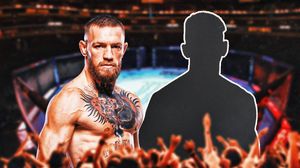Three American citizens, Mark Swidan, Kai Li, and John Leung, are heading home for Thanksgiving this year after being freed from Chinese detention, marking the culmination of years of complex diplomatic negotiations. Earlier this week, the White House confirmed the trio’s release, stating it was the result of sensitive discussions with Beijing involving unidentified Chinese detainees held by the United States.
Swidan, who is from Texas, faced death row on drug-related charges since his arrest back in 2012, charges denounced by U.S. officials as lacking credible evidence. Kai Li, detained since 2016, had been serving a 10-year sentence for espionage—a claim his family has described as baseless, echoing sentiments from advocacy groups and some lawmakers. John Leung, also facing serious legal troubles, was sentenced last year to life imprisonment on similar espionage charges and has resided mostly out of the public eye.
The trio's return home is especially significant as they were designated by the U.S. State Department as wrongful detainees, highlighting the strained relations between Washington and Beijing, marked by their respective concerns over human rights and legal injustices. Previous cases, such as the long-awaited release of U.S. pastor David Lin—a man who had been imprisoned since 2006—signaled potential shifts toward improved diplomatic ties.
Senate Majority Leader Chuck Schumer, who played a notable role during the negotiations, expressed relief and gratitude for the outcome. "Soon, they will return and be reunited with their families for the first time in many years," stated Schumer. He emphasized the significant emotional weight this release carries for the families involved, particularly for Harrison Li, who implored U.S. authorities to take action on behalf of his father.
During hearings earlier this year, Harrison voiced his despair and frustrations about his father's detention, stating, "I have now spent a third of my life missing my dad." His constant push for action has not been unnoticed; Chuck Schumer has echoed the sentiments of hopelessness one could feel when family members are held under questionable circumstances overseas.
The action taken by the Biden administration coincides with the flurry of diplomatic maneuvers aimed at stabilizing U.S.-China relations amid broader geopolitical conflicts. The National Security Council announced, "With the release of these three detainees, there are no remaining U.S. citizens considered wrongfully detained by the U.S. government still held captive by China." This marks a noteworthy moment for the current administration as they strive to extend avenues of diplomatic dialogue.
Part of the negotiations surrounding the release included adjustments to travel advisories for U.S. citizens traveling to China. The update altered the warning level from "reconsider travel" (Level 3) to "exercise increased caution" (Level 2) due to persistent fears of arbitrary detentions and lack of transparency within the Chinese legal framework.
U.S. officials have long warned about the potential risks American travelers face when they navigate through China, often highlighting how political tensions can derail lives and lead to wrongful apprehensions. The advisory changes are believed to be directly tied to the outcomes of the discussions concerning the detainees.
Reunification with families isn't just about personal joy; it also reflects the broader impacts on diplomacy between two nations with often contentious relations. This recent release aligns closely with the bilateral efforts to address multiple issues, ranging from trade disputes to security challenges. The backdrop of these negotiations has seen both presidents Biden and Xi Jinping increasingly engaging with one another. Their recent meeting on the sidelines of the Asia-Pacific Economic Cooperation (APEC) summit highlighted President Biden’s commitment to these discussions, stressing the importance of resolving these cases as integral to their relationship.
The release of the trio also raises questions about the future of U.S.-China relations, particularly with the impending return of former President Donald Trump to the political arena. Trump has expressed intentions to adopt a firmer stance against China, directly linking issues such as drug trafficking and economic negotiations to China's handling of U.S. detainees. During his first term, he was known for his confrontational tactics, which indicated he may shift back to stricter policies once back in office.
American officials anticipate the potential ramifications of these developments and the complex dynamics they may initiate. The Biden administration has managed to negotiate the release of more than 70 Americans detained abroad during their tenure, passing through multiple trials of diplomacy to see this enactment come to fruition. Still, the evolution of cooperation between Western powers and China remains uncertain, particularly as geopolitics continues to oscillate.
For now, though, families across America celebrate the long-awaited reunions over Thanksgiving, thankful for their loved ones' return and hopeful for peaceful resolutions to persistent tensions.
Reflecting on this delicate balance of diplomacy, as the situation resolves for Swidan, Li, and Leung, one could ponder: will this festive reunion translate to long-term progress, or will the undercurrents of political strife dilute its significance? The nuance of human stories intertwined within larger negotiations speaks volumes about the persistent quest for justice and familial bonds, reminding us all of the importance of compassion even amid foreign strife.



